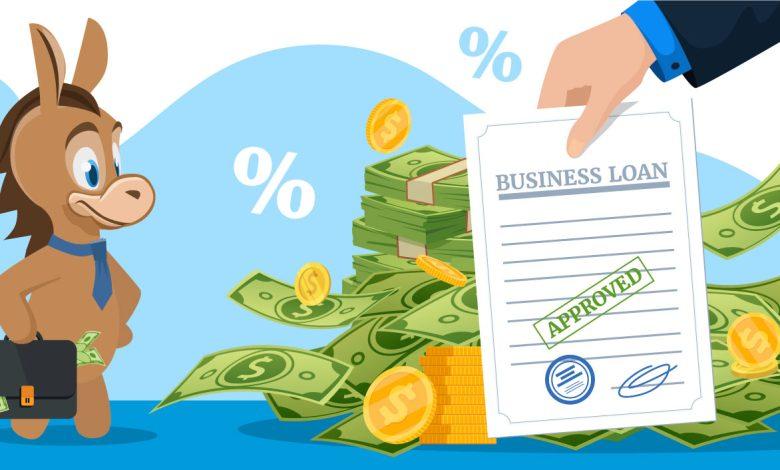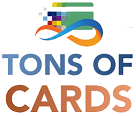The SBA Loan Types Rates & Requirements
Apply for the SBA 7(a) Loan - No Collateral Required

The Small Business Administration (SBA) offers several loan programs designed to help small businesses get started and expand. These loans are offered through banks, credit unions, and community-based lenders. Each program has its own set of requirements and terms, so make sure you understand what each lender requires before applying.
SBA Loan Program Descriptions
There are four different types of SBA loans: microloans, direct loans, 504 loans, and SBIC loans. Microloans are short term loans ranging from $10,000-$35,000. Direct loans are long term loans between $50,000-$500,000. 504 loans are low interest loans for companies who have been around less than five years. SBIC loans are specifically for women owned business enterprises.
SBA Loan Application Process
To apply for any type of SBA loan, you need to complete an application. You can find sample applications online at sba.gov/sampleapplications. If you’re not familiar with completing an application, here are some tips to keep in mind:
• Be thorough. Make sure you answer all questions completely and accurately. Don’t leave anything out!
• Write legibly. Use black ink only. Do not use colored pens or pencils.
• Include all relevant information. Provide your name, address, social security number, date of birth, employer identification number, and contact information.
• Submit supporting documentation. Proof of income, assets, equity, and collateral may be requested.
SBA Loan Interest Rates
Interest rates vary depending on the type of loan you choose. Here are the current SBA loan interest rates:
- Microloan – 2% fixed rate for 12 months
- Direct Loan – 4% fixed rate for 15 years
- 504 Loan – 3% fixed rate for 10 years
- SBIC Loan – 1% fixed rate for 5 years
If you want to learn more about these loans, visit sba.gov/lending.
How Much Can I Qualify For?
The amount that a lender will lend you depends on many factors, including how much money you need, your credit score, and the type of loan. The maximum amount that a lender is willing to lend varies by type of loan. For example, the maximum amount that a bank would lend you for a microloan is $35,000. However, if you were to borrow $100,000 from a private investor, the maximum amount they could lend you would be $100,000. For most SBA loans, the minimum amount that a lender is required to lend is $5,000. The maximum amount that a lender can lend for a microloan ranges from $10,000 to $35,000. For a direct loan, the minimum amount that lenders are required to lend is $50,000. The maximum range of direct loans is $500,000. For 504 loans, the minimum amount the lender must lend is $25,000. The maximum loan amount is $1 million.
Apply for the SBA 7(a) Loan – No Collateral Required
Are you looking for same day business loans or fastest business loans? Are you wondering where to get unsecured business loans? If yes, then you’ve come to the right place. In this article, I’ll show you how to apply for same day business loans, fastest business loans, and unsecured business loans. Business owners often struggle to access capital to fund their businesses. This is because banks tend to focus on credit risk rather than cash flow. As such, they prefer to lend money to companies that already have established track records.
Same Day Business Loans
Same day business loans are short term loans that allow borrowers to borrow funds within 24 hours. The loan amount ranges from $10,000 to $1 million. These loans are typically secured against collateral (such as real estate) and are usually offered at higher interest rates compared to other types of loans.
Fastest Business Loans
Fastest business loans are long term loans that provide financing over 3 months. They are also known as revolving lines of credit. Typically, these loans are provided by commercial lenders who specialize in lending to small businesses.
Unsecured Business Loans
Unsecured business loans are short term personal loans that don’t require collateral. These loans are ideal for startups and individuals who want to start a new venture without having to worry about securing a bank loan. There are no credit checks involved with an unsecured business loan. However, there may be additional documentation requirements. The first step towards obtaining a loan is to determine if you qualify. An SBA-guaranteed business loan is one of the most popular forms of small business funding available today. If you’re a self employed professional who needs a business loan, consider applying for the Self-Employed Small Business Association (SESA). The SESA provides low cost loans up to $150,000 to eligible self-employed professionals.
What Is A Business Line Of Credit?
A business line of credit is an alternative form of borrowing used primarily by small businesses to finance working capital expenses. As such, most entrepreneurs opt to use a business line of credit instead. This option allows you to extend a line of credit to your company until your next monthly payment. As it continues to rollover, all of the money borrowed becomes part of your total outstanding balance. So, if you borrow $1,500 initially, and make payments for eight months, then your total debt would be $8,400.
How to Get Business Financing Without Collateral
Businesses with bad credit need no collateral to apply for an SBA 7(a)-backed loan. Lenders often look at how much cash flow a small business has before deciding whether or not to grant a loan. If a small business doesn’t have enough cash flow coming in from customers, lenders may decide to lower the loan amount offered because they believe that the business might struggle financially.
Commercial Bank Loans
Although many people think of banks when it comes to getting a business loan, they aren’t always the best choice. Banks tend to look at traditional factors like collateral value and credit score before making a decision regarding whether or not to approve a loan application. As a result, they may only offer smaller amounts of money or more expensive terms than they could if they were able to see a bigger picture of the financial strength of a business.
Self-Employment Loans
If you lack collateral but are willing to put down a sizeable portion of your paycheck every month, then you can still obtain a small business loan through a self-employment loan. Lenders will accept less collateral if you agree to pay back the full loan amount each month. In other words, even if you default on a self-employment loan, you won’t lose any equity in your home. It’s important to point out that self-employment loans come with additional fees to cover their own costs, so plan ahead of time to save money on these types of loans.
Small Business Lending Programs
Some states provide programs designed specifically to help small businesses access private lending facilities. For example, Michigan offers the Small Business Development Center Program which aims to “provide counseling services, assistance in developing and implementing a business plan, and access to training resources.” Some cities also offer small business funding programs where local government agencies partner with community banks to provide small business loans for qualified applicants.
Lender’s Down Payment Assistance – A Loan Guarantee
Another way to acquire funds for your startup is to request a lender to guarantee the entire loan amount. The lender will charge you an interest rate slightly higher than what they’d normally charge you, but the difference in rates is offset by the fact that they’ll absorb the losses in case you fail to repay the loan.

